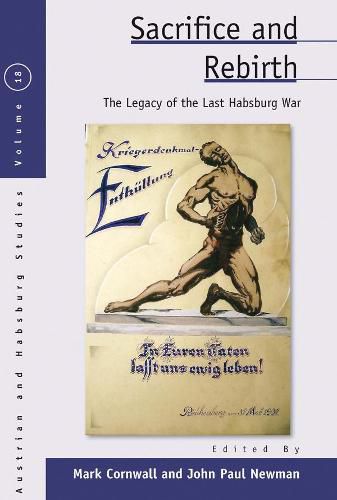Readings Newsletter
Become a Readings Member to make your shopping experience even easier.
Sign in or sign up for free!
You’re not far away from qualifying for FREE standard shipping within Australia
You’ve qualified for FREE standard shipping within Australia
The cart is loading…






This title is printed to order. This book may have been self-published. If so, we cannot guarantee the quality of the content. In the main most books will have gone through the editing process however some may not. We therefore suggest that you be aware of this before ordering this book. If in doubt check either the author or publisher’s details as we are unable to accept any returns unless they are faulty. Please contact us if you have any questions.
When Austria-Hungary broke up at the end of the First World War, the sacrifice of one million men who had died fighting for the Habsburg monarchy now seemed to be in vain. This book is the first of its kind to analyze how the Great War was interpreted, commemorated, or forgotten across all the ex-Habsburg territories. Each of the book’s twelve chapters focuses on a separate region, studying how the transition to peacetime was managed either by the state, by war veterans, or by national minorities. This splintered war memory, where some posed as victors and some as losers, does much to explain the fractious character of interwar Eastern Europe.
$9.00 standard shipping within Australia
FREE standard shipping within Australia for orders over $100.00
Express & International shipping calculated at checkout
This title is printed to order. This book may have been self-published. If so, we cannot guarantee the quality of the content. In the main most books will have gone through the editing process however some may not. We therefore suggest that you be aware of this before ordering this book. If in doubt check either the author or publisher’s details as we are unable to accept any returns unless they are faulty. Please contact us if you have any questions.
When Austria-Hungary broke up at the end of the First World War, the sacrifice of one million men who had died fighting for the Habsburg monarchy now seemed to be in vain. This book is the first of its kind to analyze how the Great War was interpreted, commemorated, or forgotten across all the ex-Habsburg territories. Each of the book’s twelve chapters focuses on a separate region, studying how the transition to peacetime was managed either by the state, by war veterans, or by national minorities. This splintered war memory, where some posed as victors and some as losers, does much to explain the fractious character of interwar Eastern Europe.